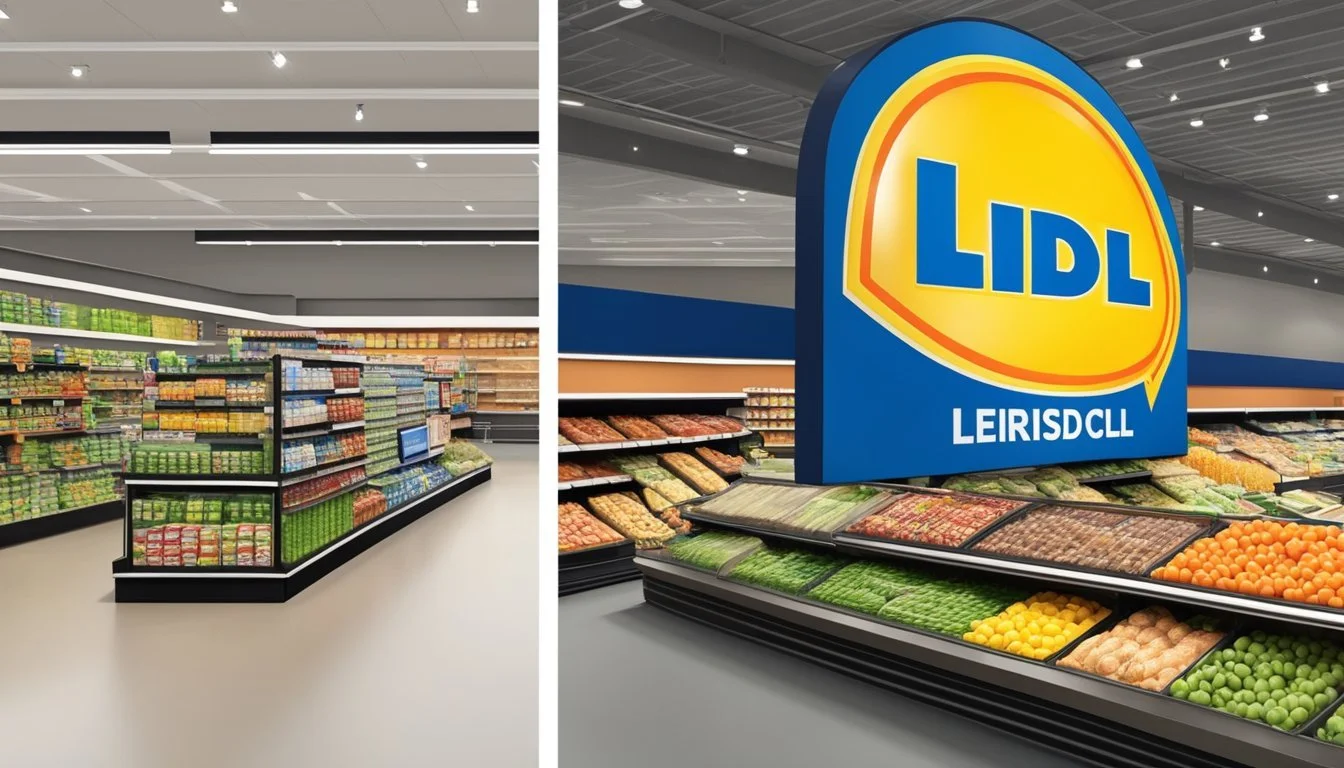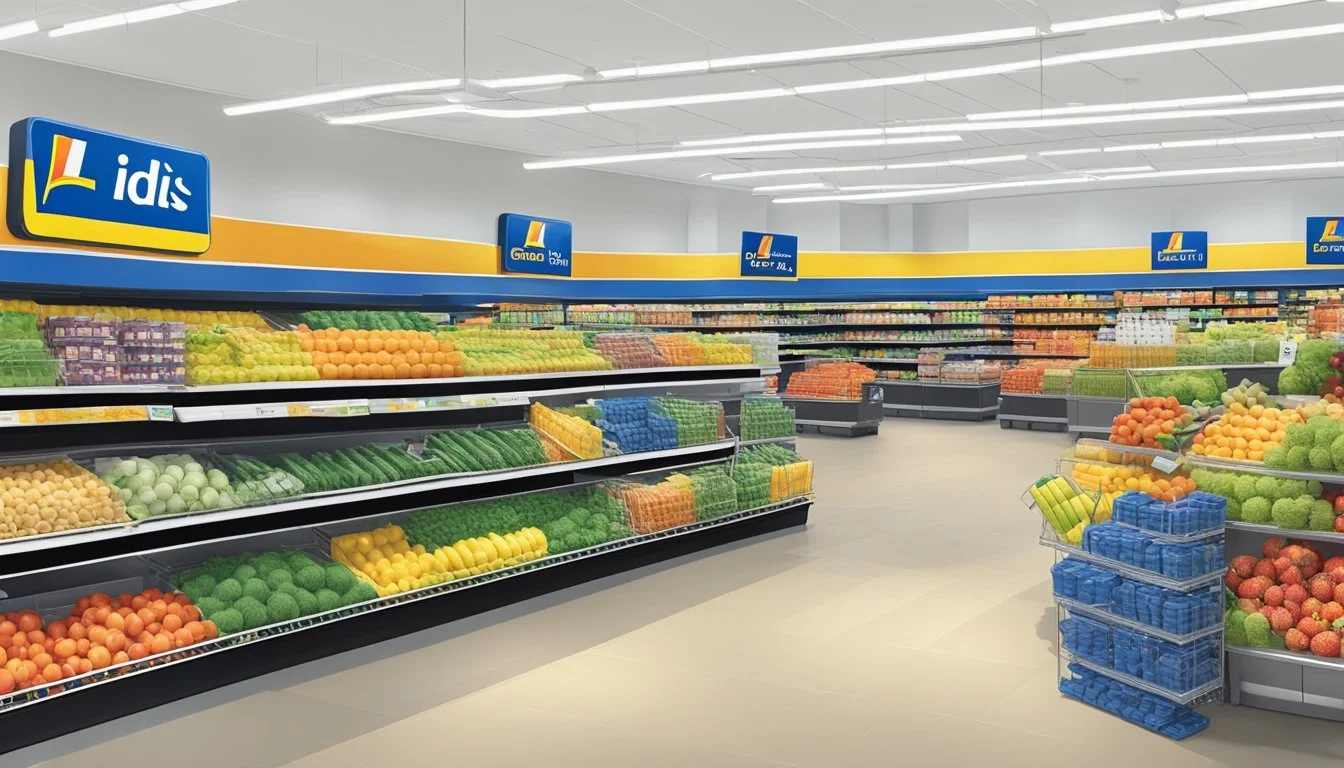Sam's Club vs Lidl
Comparing Grocery Store Benefits and Value
Part of Our Grocery Store Guide with Details on Sam's Club and Lidl
Choosing the right grocery store can significantly impact a consumer's shopping experience and budget. With various options available, it is crucial to understand what each store offers and how they differ. Sam's Club, a membership-based warehouse club, provides bulk items at competitive prices, catering to households looking for larger quantities and savings through membership. Lidl, on the other hand, operates on the model of efficiency and simplicity, with a focus on offering high-quality products, including their private labels, at low costs.
When comparing Sam's Club and Lidl, shoppers must consider several factors, such as product variety, pricing, membership requirements, and store layout. Sam's Club boasts an extensive selection of products, from groceries to electronics, which can be appealing to shoppers seeking a one-stop shop. In contrast, Lidl emphasizes a streamlined shopping experience with a curated selection of goods, reducing the overwhelming nature of choice and often leading to a quicker shopping trip.
Each grocery store has carved out its niche in the market by adopting different business strategies. Sam's Club leverages its extensive network and bulk purchasing power to drive down prices for its members, while Lidl's cost-saving approach in store operations and product sourcing allows it to pass on savings to customers without the need for a membership fee. These contrasting business models ultimately cater to different shopper preferences and needs, making the question of which is better highly subjective and dependent on individual shopping habits.
Overview of Sam's Club and Lidl
In the competitive landscape of grocery chains and membership-based shopping clubs, Sam's Club and Lidl stand as prominent entities with distinct operational philosophies and market impacts.
History and Business Model
Sam's Club, a subsidiary of Walmart, operates on a membership-based model, offering bulk products often at discounted rates. Founded in 1983 by Sam Walton in Midwest City, Oklahoma, it has expanded to provide not only grocery items but also electronics, jewelry, and services such as tire and battery centers.
Lidl, on the other hand, is a German global discount supermarket chain that started in 1973. It has no club membership requirement and is recognized for offering a range of high-quality products, including many European goods, with a focus on value and lower operating costs through minimalistic store designs and private brands.
Store Presence and Expansion
Sam's Club boasts a wide American presence with hundreds of stores across the United States, and remains aggressive in maintaining and expanding its footprint.
Lidl has a smaller U.S. presence but is a supermarket giant in Europe. Its U.S. stores have seen a progressive expansion, especially on the East Coast, aiming to compete with established grocery stores like Aldi and traditional retailers such as Wegmans and Kroger.
Target Demographics
Sam's Club primarily attracts consumers who prefer bulk purchasing, from families to small business owners. The typical Sam's Club shopper is looking for savings through larger pack sizes and often anticipates a long-term stock-up.
Conversely, Lidl appeals to a broad demographic that values affordable prices without the requirement for buying in bulk. Its customers range from budget-conscious individuals to those seeking specialty European items.
Brand Recognition and Loyalty
Sam's Club has leveraged its Walmart association to establish significant brand recognition in the United States. This recognition comes with a strong base of loyal members who renew their club memberships annually.
Lidl's growth in brand recognition is aided by its reputation for value and quality in Europe which carries weight as it expands in the U.S. It positions itself as an alternative to traditional grocery stores, gaining customer loyalty for its competitive pricing and unique product offerings.
Membership Requirements
To shop at Sam's Club, customers need a membership card. The chain offers various levels of memberships, each providing a tier of benefits such as cashback rewards and early shopping hours.
Lidl has no membership barrier, allowing shoppers immediate access to its goods without any signup or annual fee, which can be more appealing to those resistant to membership-based shopping.
Products and Pricing Comparison
When choosing between Sam's Club and Lidl, consumers must consider factors such as product assortment, quality, pricing strategies, and exclusive brand offerings to determine which grocery store better meets their needs.
Product Variety and Availability
Sam's Club offers a broad selection of grocery items, focusing on bulk packaging that appeals to households and businesses. It stocks a wide range of food categories, including fresh produce, meats, and cheeses. Lidl, on the other hand, tends to offer a more curated selection. However, both stores maintain an inventory that covers most household staples.
Quality Considerations
Lidl is known for its high-quality bakery and fresh produce sections, offering a variety of international and domestic goods. Sam's Club has a reputation for providing specialty meat and cheese items. Both stores have made efforts to source quality products and offer a selection of organic and premium items.
Pricing Strategies
Lidl operates with a low-price model and Sam's Club aims to deliver value through membership-based bulk purchases. Lidl's prices are generally competitive on a unit price basis, while Sam's Club might offer cost savings for those who buy in larger quantities. As Sam's Club is akin to warehouse clubs like Costco, the savings are more noticeable when purchasing larger volumes.
Exclusive Deals and Brand Offerings
Sam's Club provides a mix of brand-name products and its own exclusive store brands, such as Member's Mark. Lidl is similar, with a strong emphasis on its store brand, which is often priced lower than comparable name brands. Both stores offer periodic deals and coupons, but Sam's Club may have an edge in offering savings on bulk purchases.
Customer Experience
Understanding the customer experience is critical when comparing Sam's Club and Lidl, as it encompasses not only the in-store atmosphere but also the added benefits, online integration, and payment options that make shopping convenient and enjoyable.
Shopping Environment
Sam's Club provides a warehouse-style environment that caters to both individuals and business customers looking for bulk purchases. They are known for their wide aisles and a large selection of goods, which may include a tire and battery center and a pharmacy within the store. Conversely, Lidl offers a streamlined shopping experience, focusing on high-quality groceries, including a robust selection of store brands which account for about 90% of their products.
Services and Benefits
Sam's Club requires an annual membership that gives access to services like curbside pickup and same-day delivery through partners like Instacart. Lidl, while not a membership-based store, also provides modern shopping conveniences such as digital coupons and a more traditional supermarket experience. Both stores have a commitment to competitive pricing and value.
Online Shopping and Technological Integration
Both supermarkets have embraced online shopping. Sam's Club offers an intuitive application that provides real-time insights for store associates, enhancing the customer experience. Lidl's partnership with delivery services, like Instacart, allows customers to shop online conveniently. Technology integration, such as digital coupons at Lidl and free shipping for certain Sam's Club members, shows each store's dedication to modernizing the grocery experience.
Payment Systems and Options
A variety of payment options is available for a personalized shopping experience. Sam's Club accept payment methods such as their branded Mastercard, Apple Pay, Google Pay, and Citi cards, catering to tech-savvy customers seeking quick checkouts. Lidl also supports modern payment methods but does not offer a store-linked credit card. Instead, customers can enjoy the simplicity of their straightforward payment systems. Both stores focus on providing a seamless checkout process catering to diverse customer preferences.
Store Policies and Additional Services
This section examines the specific return policies, specialized services, and membership rewards of Sam's Club and Lidl to provide insights into their offerings and customer experience benefits.
Return Policies and Customer Satisfaction
Sam's Club: The store offers a liberal return policy, typically allowing returns on most merchandise with no time restriction for a full refund, which plays into its commitment to customer satisfaction. Certain items like electronics may have a shorter return window. Moreover, the inclusion of a tire and battery center as well as pharmacy services heightens the shopping convenience, ensuring quality service under one roof.
Lidl: On the other hand, Lidl provides a "Freshness Guarantee" for its produce, meat, and bakery items, with a simple return policy where customers can return products and get a refund, demonstrating Lidl's confidence in the quality of their offerings. For non-food items, the return policy is generally generous, enabling customers to shop with assurance.
Specialized Departments and Additional Services
Sam's Club: Members can benefit from various services beyond just shopping, such as gas stations offering discounted fuel prices, a pharmacy, a tire and battery center, and even optical services. These add-ons enrich the club membership experience by providing multiple services at reduced prices or as part of the membership package.
Lidl: While Lidl focuses primarily on grocery services and does not offer a tire and battery center or gas station, the store is committed to providing a wide assortment of products with a constantly rotating stock that encourages customers to discover new items at competitive prices.
Membership Perks and Extras
Sam's Club: Maintaining a club membership with Sam's Club entails an annual service fee, but it grants access to bulk savings and members-only prices on a myriad of products. Members can also obtain a membership card that can be used across all Sam's Club locations for additional savings, and even receive discounts on gas at Sam's Club gas stations.
Lidl: Lidl does not require a membership or membership card, eliminating any service fees and making their low prices accessible to every customer immediately. They aim to simplify the shopping experience while still providing high-quality products at outstanding values, but without the extra layer of membership benefits.
Consumer Savings Analysis
Evaluating grocery stores like Sam's Club and Lidl, consumers are often interested in assessing how one retailer might offer more savings opportunities than the other. This analysis directly compares both, focusing on the potential for long-term value, and examining how deals and coupons can influence overall costs.
Comparison of Overall Savings
Sam's Club, a membership-based warehouse club, offers bulk items and typically lower prices per unit. Their large packs can lead to significant savings for larger households. In contrast, Lidl, a German discount supermarket chain, offers low prices with a no-frills shopping experience, which can be particularly cost-effective for smaller purchases or households.
Sam's Club: Membership fee required, potentially offset by lower unit prices and bulk savings.
Lidl: No membership fee, with competitive pricing on individual items.
Calculating Long-Term Value for Shoppers
A shopper’s long-term value from either store depends on shopping habits and needs. Sam's Club members can find the annual membership cost worthwhile if they often buy in bulk and are interested in additional services, like pharmacy or optical. Whereas Lidl shoppers benefit without a membership fee, making it easier for consumers to shop as needed without upfront costs.
Sam's Club: Membership can provide value over time with consistent bulk buying.
Lidl: Pay-per-item model can offer immediate savings without long-term commitments.
Impact of Deals and Coupons
Both stores offer various deals to attract and retain customers. Sam's Club often provides instant savings or member-only coupons that can lead to considerable discounts on bulk purchases. Lidl has a rotating selection of weekly specials and coupons, accessible via their app, enabling consumers to save money on a variety of products.
Sam's Club: Exclusive member deals and periodic coupon books.
Lidl: Weekly deals featured in store adverts and digital coupons through the Lidl app.
Final Verdict
This final section synthesizes the detailed comparisons to deliver a clear conclusion on the two grocery store giants, Sam's Club and Lidl. Readers will find a nuanced discussion on strengths, weaknesses, and situational shopping preferences.
Pros and Cons of Sam's Club
Pros of Sam's Club:
Membership Benefits: Sam's Club offers bulk purchases at competitive prices for members which can lead to significant savings, particularly for larger households.
Product Variety: The store has a vast range of products beyond groceries, including electronics and furniture.
Cons of Sam's Club:
Membership Requirement: Shoppers must purchase a membership to shop, which can be a barrier for those who do not buy in bulk often.
Store Layout: Some customers may find the store layout overwhelming due to its warehouse style.
Pros and Cons of Lidl
Pros of Lidl:
Freshness: Lidl has gained recognition for the freshness of its produce, appealing to health-conscious shoppers.
Shopping Experience: Stores are typically smaller than Sam's Club, offering a more straightforward shopping experience.
Cons of Lidl:
Limited Selection: Lidl's product range may be more limited compared to larger grocery stores, which could require additional trips to other stores.
Inconsistent Stock: Sometimes, their inventory can be less predictable, making it difficult to find the same product consistently.
Which Store Suits Your Needs?
Sam's Club excels for those who prefer a one-stop shop with the ability to buy in bulk and don't mind paying for a membership. On the other hand, Lidl is more suited for shoppers looking for fresh groceries and a simple store layout without a membership requirement.
Conclusion and Recommendations
When comparing Sam's Club and Lidl, the decision hinges on individual shopping priorities. For extensive product selection and bulk purchases, Sam’s Club is the appropriate choice. However, if one prioritizes fresh produce and convenience without the need for a membership, Lidl is the favorable option.







